Search Images
Browse Content (p. 927)
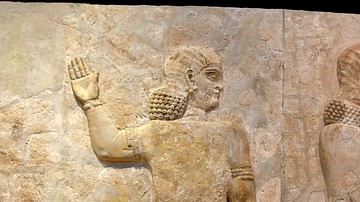
Image
Assyrian Master of Ceremonies
Alabaster-bas relief, part of a long tributary scene, where the Assyrian king, Sargon II (not shown here), stands majestically, waiting to receive the tribute from Urartu (modern-day Armenia). From the Royal Palace of Sargon II at Khorsabad...
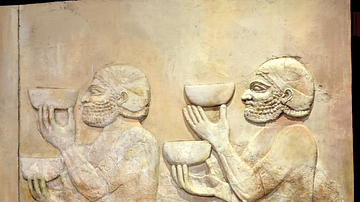
Image
Tribute Bearers from Urartu
Two bearded male figures from Urartu carrying tribute. This alabaster-bas relief is part of a long tributary scene, where the Assyrian king, Sargon II (not shown here), stands majestically, waiting to receive the tribute from Urartu (modern-day...
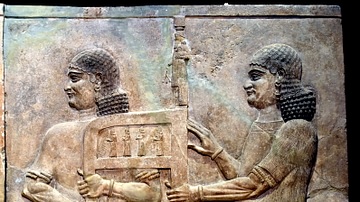
Image
Sargon II's Throne
Two Assyrian servants carry what appears to the throne of King Sargon II. Traces of the original paint can be seen. Note the details of the throne. This alabaster bas-relief is part of a long tributary scene, where the Assyrian king, Sargon...
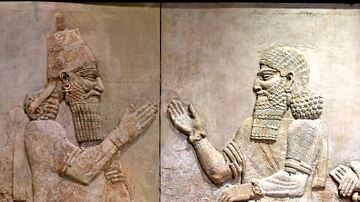
Image
Sargon II and Turtanu
This almost 3 meters high alabaster bas-relief depicts the Assyrian king Sargon II (left; wearing the typical conical hat). Recognizable by the long sword hanging on his side, diadem, long curly beard, and the elegant dress, a figure greets...
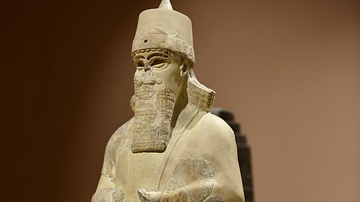
Image
Statue of Shalmaneser III from Nimrud
This statue represents Shalmaneser III (reigned 858-824 BCE) and was found by a peasant accidentally in the early spring of 1956. It was badly fragmented at the south-east corner of Nimrud city wall, at the foot of the acropolis. The statue's...
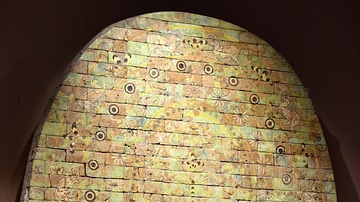
Image
Glazed Wall Panel from Fort Shalmaneser
This large wall panel of vibrant glazed bricks was once placed above the entrance to a vast room (T3) next to Shalmaneser III's throne room at Fort Shalmaneser in Nimrud (in modern-day Nineveh Governorate, Iraq). The whole panel is composed...
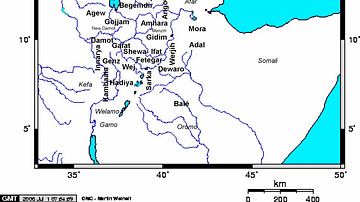
Image
Ethiopian Empire Map
A map of the medieval Ethiopian Empire. Names in italics denote independent tribes.
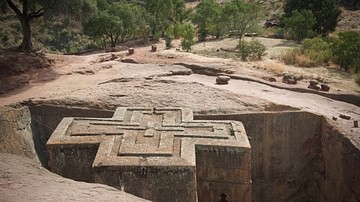
Image
Saint George's Church, Lalibela
Church of Saint George at Lalibela, Ethiopia, 11-12th century.
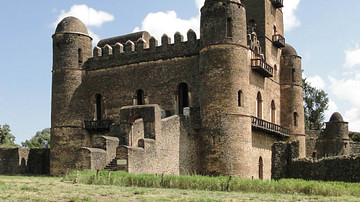
Image
Fasilides Palace, Gondar
Fasilides Palace in the Fasil Ghebbi, Gondar, Ethiopia. Gondar was made the capital of the Kingdom of Abyssinia (aka Ethiopian Empire) in 1636 CE.

Image
Yvain Rescues the Lion
"Yvain rescues the lion", miniature from Garrett MS. No. 125 (ca. 1295 CE) kept at Manuscripts Division, Department of Rare Books and Special Collections, Princeton University Library